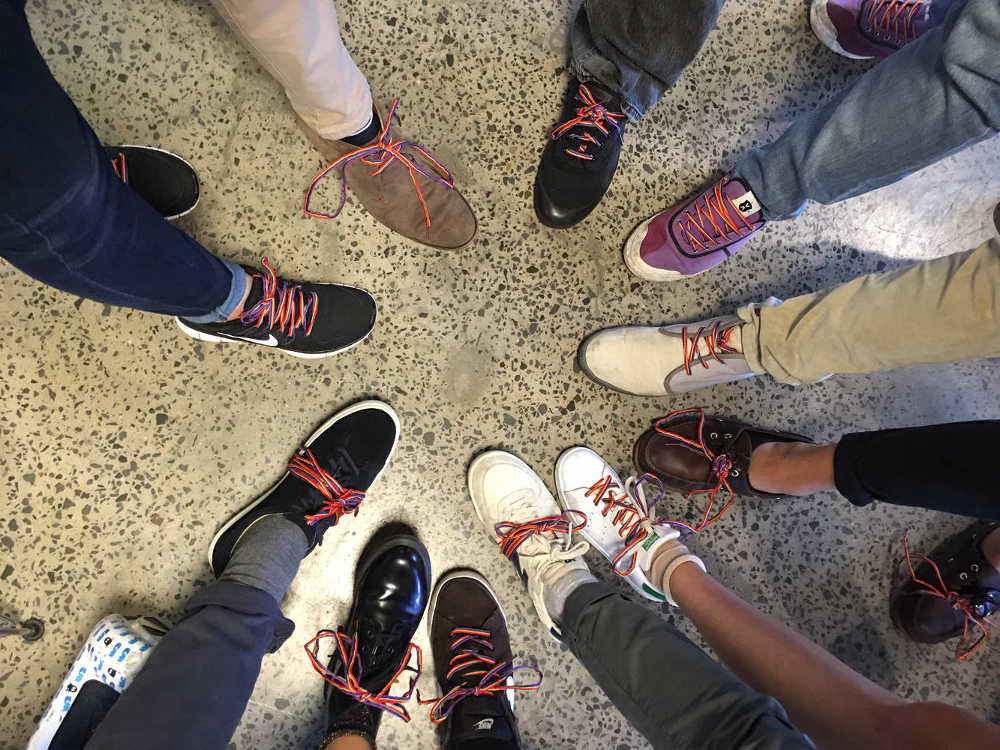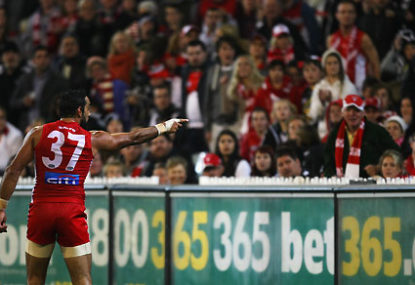For someone that follows rugby league as passionately as I do, I’ve spent a lot of time over the last week talking about AFL.
It began earlier in the week when social media exploded following the announcement that Channel Seven senior journalist Rebecca Maddern would become co-host of the AFL Footy Show.
Comments like “this show will now become as funny as a shark attack” and “it’s honestly going to suck having a woman on there”, left me scratching my head as to why, yet again, the ability of a woman to contribute positively to a conversation on sport was being debated.
Funnily enough, no one questions the ability of Ray Warren or Jim Wilson to commentate on sport, despite them ‘never having laced on a pair of boots’. However, qualified women often need to justify what gives them the authority, knowledge or right to participate and drive conversations about sport.
The controversy did not end there, though.
On Friday night at the game between the Collingwood and Richmond, a group of Magpies fans held up a banner with the crest of the United Patriots Front on it, which read: “Go Pies. Stop the Mosques“.
Collingwood released a statement almost immediately after the game, stating the club was “appalled” by the banner, and promising action would be swiftly taken once the perpetrators were found.
Pies president Eddie McGuire said, “Get them out of our grounds. Get them out of our sport.”
Some sections of the media will use both the Maddern incident and the sign from Friday night as another opportunity to label one of our sporting codes as having particular problems, in this case sexism and racism.
This happens all the time.
For example, each time domestic violence occurs in rugby league, the incident is used to contribute to a narrative which paints all rugby league players as having little to no understanding of how to behave in public, having no respect for women, and suggesting women are not welcome in the rugby league family.
Each time a flare is lit in the A-League, the incident is used to contribute to a narrative which paints the game’s fans as hoodlums and thugs, and football as a sport where incidents of violence are prevalent.
But no one sport has a problem more significant than the others. The reality is that each of these narratives are relevant to all our sports, and will likely be for years to come. Because sport reflects society.
So long as issues like racism, sexism and homophobia continue to be prevalent, they will continue to be reflected in sport, and perpetrators will include players, the fans and people who sit on governing bodies.
The perpetrators of acts of racism, sexism and homophobia do not represent our sports – quite the contrary – they are a minority. Just like the Collingwood fans on Friday night do not represent the AFL, the fan that lights a flare at the A-League does not represent football, and the player who commits an act of domestic violence does not represent the NRL.
So let’s stop writing that narrative, and create a new one.
Instead of labelling one sport as having a specific problem, why don’t our codes to work together and make a stand against the issues which all codes collectively face? Surely this would be far more productive than pointing the finger.
I saw an excellent example of this on the weekend, where several athletes joined together for the inaugural SKINS Rainbow Laces campaign, which is focused on kicking homophobia out of sport.

We here at The Roar proudly rocked the rainbow laces.
At the launch at Bondi Beach on Wednesday, it did not matter that Sharni Layton plays netball for the NSW Swifts, Matt Toomua plays rugby for the ACT Brumbies, Dylan Shiels plays AFL for the Greater Western Sydney Giants, or Nathan Peats plays NRL for the Parramatta Eels.
Instead, the focus was on creating a collective voice to say that homophobia is unacceptable.
The campaign saw a number of athletes and teams wearing rainbow laces, including Alex Blackwell during the World T20 final between Australia and the West Indies, and athletes like Johnathan Thurston spoke openly about the need to eradicate homophobia in sport.
Athletes are revered as role models, so let’s take advantage of this to drive and influence change in our communities.
Whether it be in relation to sexism, racism or homophobia, I want to see our sports standing together, saying that this sort of behaviour is unacceptable and has no place in Australian society, rather than simply trying to get one up on each other in the code wars.






























































































